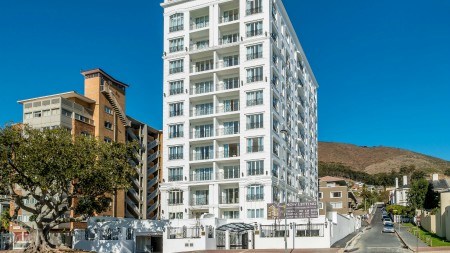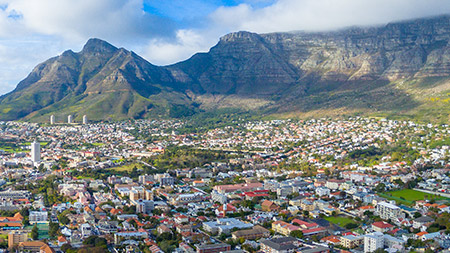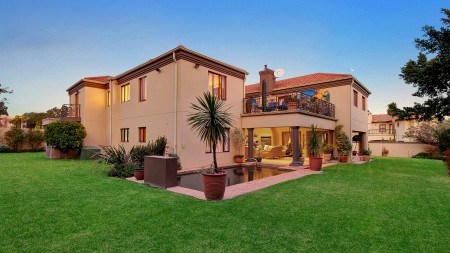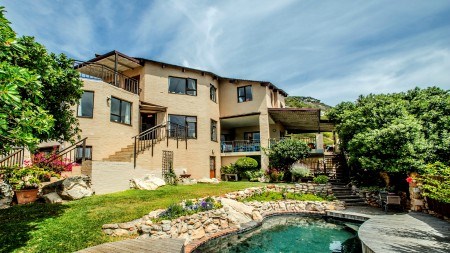The first priority for many young professionals when they start working is to find a place of their own. Here’s what you need to know about renting in Cape Town.
So, you’re just about three pay checks into the new year and ready to move out of mom and dad’s house and into your first rental?
According to Seeff’s agents, moving into a place of their own tends to rank high on the list of young job market entrants and especially professionals. The desire for independence and the achievement of being able to take care of yourself are some of the reasons why young people enter the rental market.
You seldom find young professionals and job market entrants buying right off the bat and they tend to rent for about five years, sometimes longer, before they are in the financial position to start thinking about their first property investment.
Natheema Tymowicz and Imtiaz Adam, rental agents with Seeff Southern Suburbs say that apartments tend to offer the ideal starter rentals. Those who cannot afford to live on their own would take on a flatmate to share the costs.
According to a recent PayProp Rental Index, the national average rental is R7,308/month. The Western Cape is the most expensive to live in with the highest average rental of R8,777/month compared to Gauteng at R7,692. More than 31% of rentals fall into the affordable bracket of R5,000-R7,500 and a further 16% in the bracket up to R10,000, this being the broad range that would include young professionals and job market entrants. Around 31%-34% of their income is spent on rent.
Important considerations before you start looking for your first apartment rental includes ensuring that you are able to afford the monthly rental. As a guideline, your rental should not be more than about 30%-40% of your income. A good credit record is a prerequisite. You will also need a security deposit equivalent to one to two times the monthly rent and rentals are payable monthly in advance.
You will be required to enter into a formal rental agreement for a fixed period of time. This is a legally binding contract which sets out the terms and conditions of the rental with penalties for non-compliance.
You will also need to undertake an incoming inspection with the landlord to highlight any issues or repairs which need to be done. This is important because any damage during your occupancy can be recovered from your rental deposit when the time comes for you to move on.
In terms of where to look, the agents say that easy access to your place of work and a good transport network is important as are the lifestyle enhancing facilities and amenities. Be sure to look out for basics such as laundry facilities, somewhere to buy your groceries and necessities and a fitness centre. Youngsters also tend to look for areas with hot hangouts and a nightlife. Security and parking are also important considerations.
Woodstock, Observatory, Claremont, Kenilworth, Plumstead and Diep River
Popular areas in Cape Town include anything from Woodstock and Observatory to Claremont and Kenilworth and on to Plumstead and Diep River according to Tymowicz and Adam. Average rental rates for the Southern Suburbs range at R7,500-R10,000/month for one bedroom and R9,000-R20,000 for two bedrooms.
Diep River and Plumstead are up and coming areas where you can find a two-bedroomed unit for around R7,000-R8,500. Imtiaz Adam says that these areas were overlooked in the past, but young professionals are now settling here because of the affordability and proximity to excellent amenities.
The Woodstock area is very popular now according to Natheema Tymowicz who says that the new Ironworks development is now coming onto the market for long-term rentals. A small one-bed unit starts at R10,500/month, a large one-bed at R13,500 and a two-bedroomed unit at R14,500.
Cape Town CBD
Another popular are for young professionals, is the CBD where you are close to work and can walk, cycle or take a short Uber hop to a host of facilities such as the Cape Town Stadium for sporting events and concerts, the Waterfront, Green Point, De Waterkant, Sea Point and the attractions of the Atlantic Seaboard.
Craig Watchurst, a rental agent with Seeff City Bowl says an unfurnished studios in the CBD range from R8,500-R10,000 and from R10,000-R12,000 for one bedroom and R12,000-R15,000 for two bedrooms although rentals can go as high as R22,000 (R35,000 for furnishes). Furnished costs about 20% more.
Sea Point, Green Point, Three Anchor Bay
Sea Point and surrounds are also popular according to Christine Ireland from Seeff Atlantic Seaboard. Rental rates for studios range from R8,000-R10,000, one beds from R9,500-R12,000 and two bedrooms from R15,000-R25,000 here, and in neighbouring Green Point and Three Anchor Bay.
Blouberg
The Blouberg area is particularly popular with young professionals who want a seaside lifestyle or have an interest in kite surfing or paddle boarding, says Clinton Martle, Seeff Licensee for the area. There is a large choice of sectional title complexes across the whole neighbourhood, ranging from affordable apartments in the old Parklands and Table View areas to beach apartments in Wave’s Edge, Bloubergsands, West Beach and Big Bay, he says.
Rentals start at around R6,500/month for a one-bedroomed unit in Parklands/Table View to around R8,000/month for two bedrooms. Apartments closer to the beaches range from around R10,000/month for two bedrooms and upwards of R13,000 for three bedrooms.







